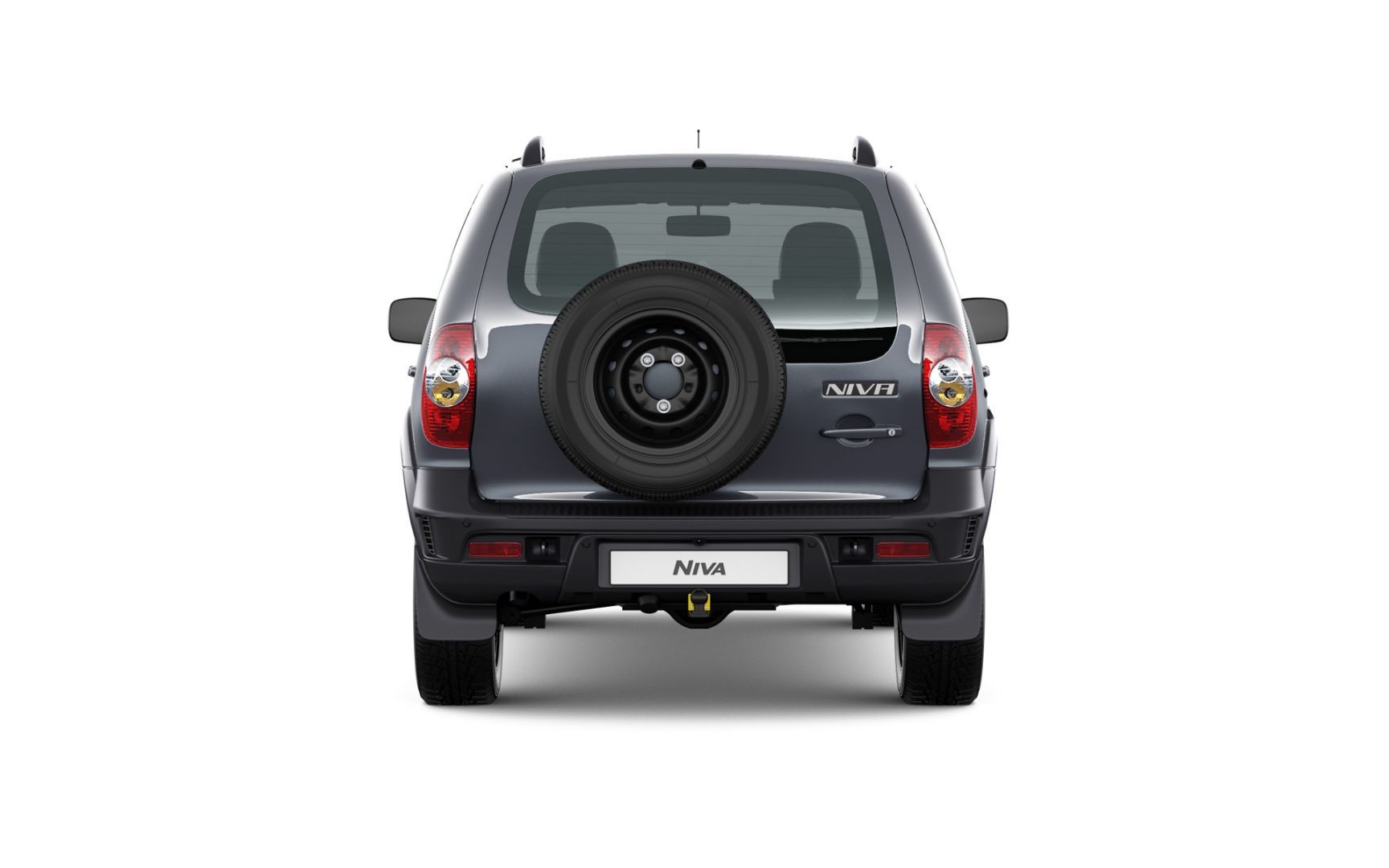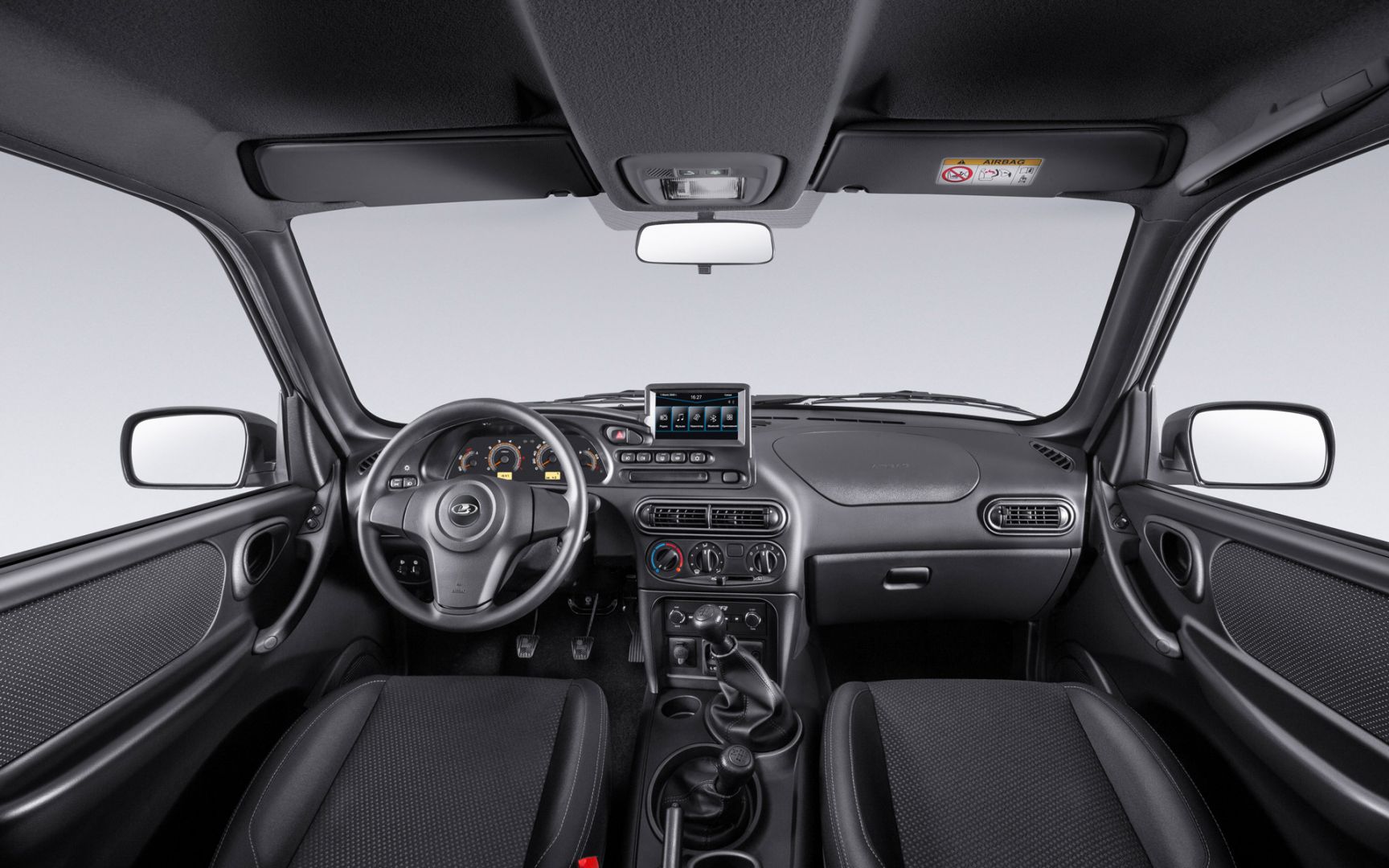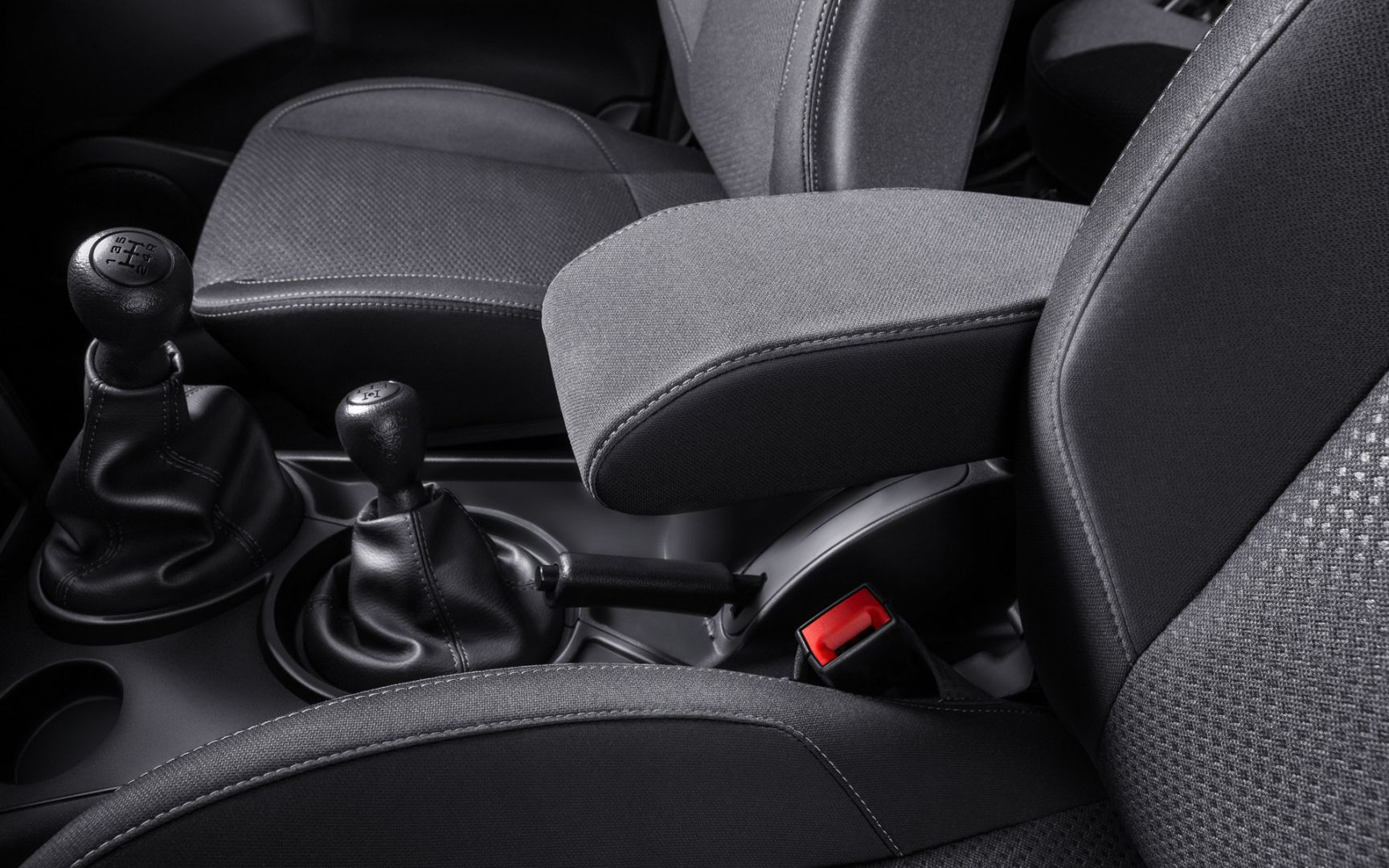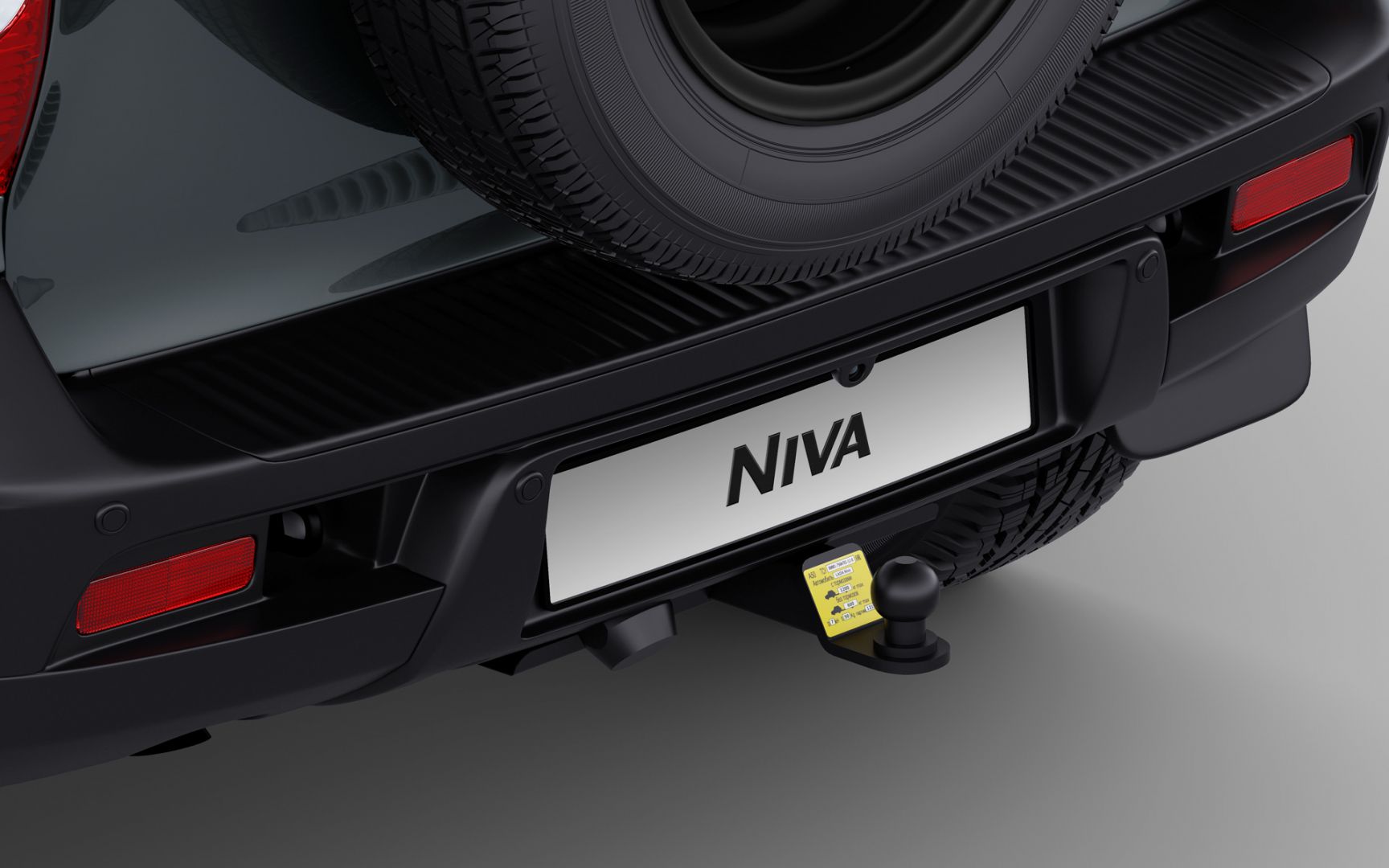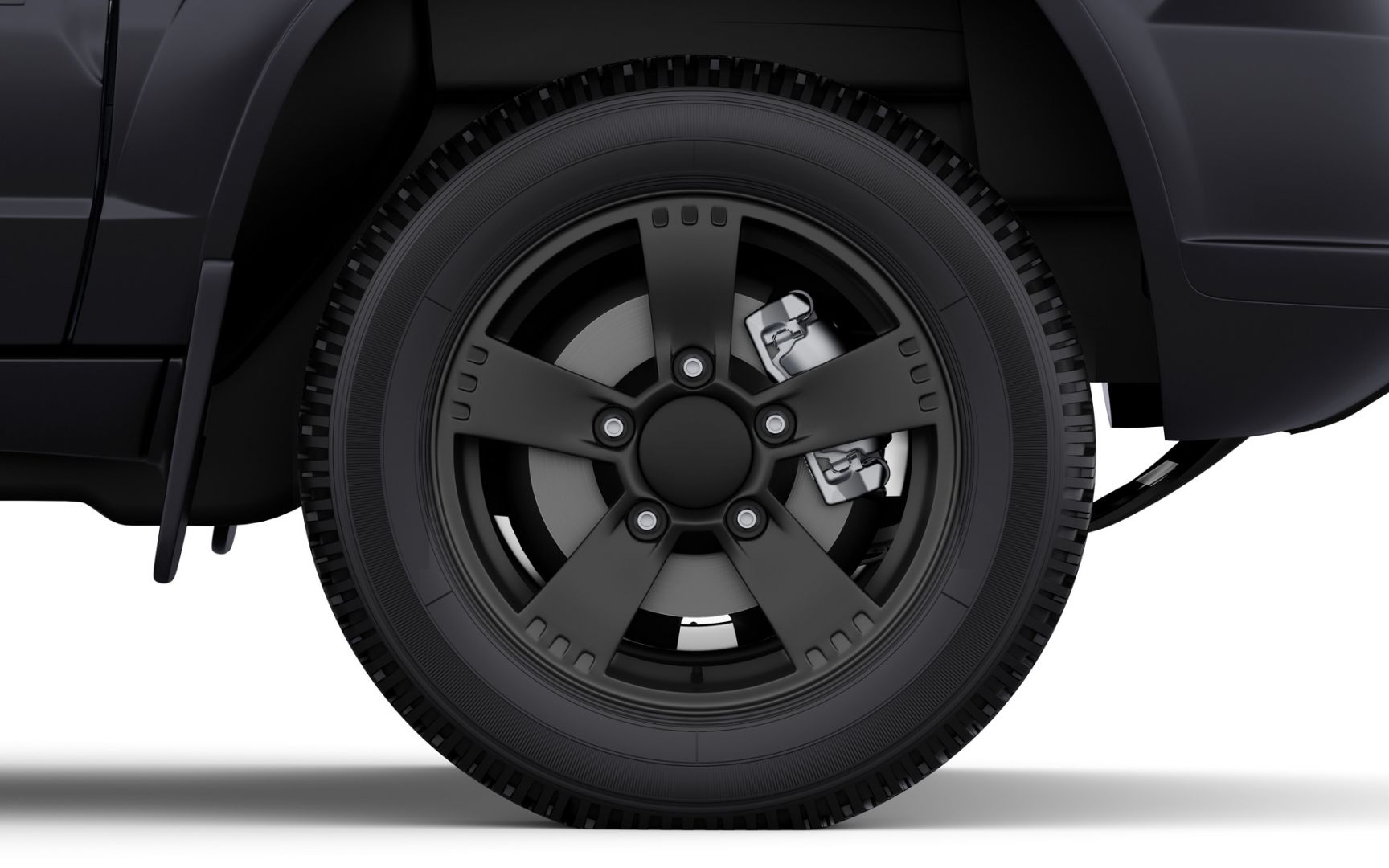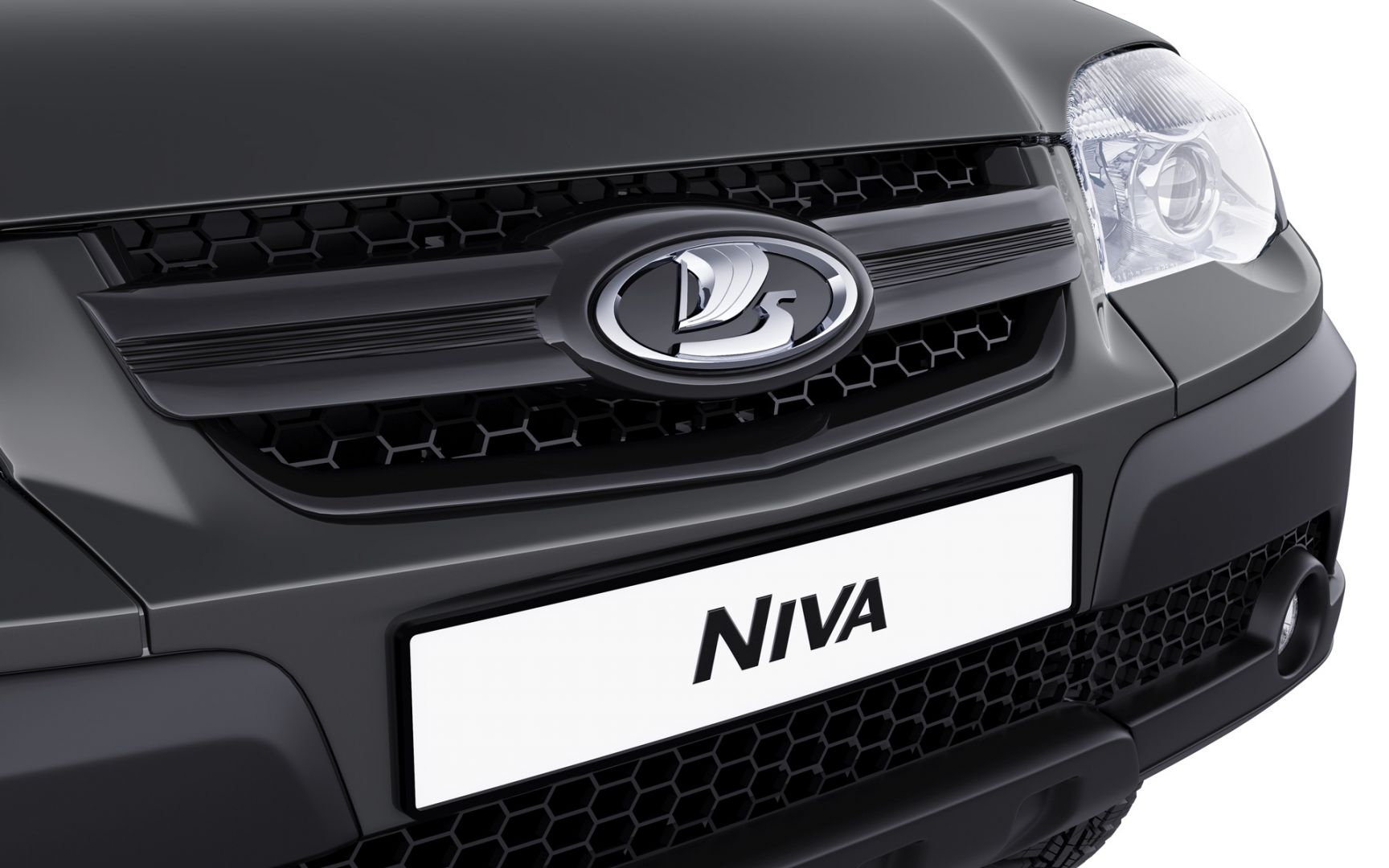Estás utilizando un navegador obsoleto. Puede que este u otros sitios no se muestren correctamente.
Debes actualizarlo o utilizar un navegador alternativo.
Debes actualizarlo o utilizar un navegador alternativo.
Video Lada Niva Travel (2021)
- Iniciador del tema cybermad
- Fecha de inicio
cybermad
Clan Leader
PRESS RELEASE
21 DECEMBER 2020
On December 21, the plant ''LADA West Togliatti'', a subsidiary of JSC ''AVTOVAZ'', started series production of the SUV under the new name - LADA Niva Travel. Dmitry Azarov, Governor of the Samara Region, and Yves Karakatzanis, President of AVTOVAZ, took part in the solemn ceremony of the first production car rolling off the assembly line. The first car released was the Niva Travel in the Off-road version.
At the ceremony, Yves Karakatzanis, President of AVTOVAZ, noted: «This is a great achievement especially for the team of «Lada West Togliatti», which managed efficiently on time this important project. Niva has a long history and a glorious path. More than 650 thousand of these cars today drive on the roads and off-road in Russia, the CIS, and other countries. With the return of the legendary Niva name to the LADA family, we open a new page in its history. I want to assure you that in the coming years, this name will be associated with a lot of important and interesting news».
The appearance of LADA Niva Travel has received significant changes, becoming more expressive and modern. In the front part, the masculine character of the car is emphasized by a new hood with more voluminous stamped lines, large-mesh grille and new headlights. Side moldings and more embossed wheel arch linings, combined with a new alloy wheel design, highlight the model`s outstanding off-road performance. The rear part also has got changes, receiving new, fully LED taillights and a more embossed bumper.
In the Off-road version, the Niva Travel exterior is complemented by a standard snorkel, off-road tires and a body kit made of unpainted plastic, which will protect the body in nature and look great on city roads thanks to contrasting details and expressive design.
All LADA Niva Travel cars are equipped with a permanent all-wheel drive system, which ensures uniform distribution and constant transmission of torque to all wheels of the car with the possibility of mechanical locking of the center differential and switching on the downshift series.
Guaranteed increased cross-country ability in difficult road conditions LADA Niva Travel also gives a compact body, optimal distance between the axles, short overhangs of the body, high ground clearance. Energy-intensive suspension makes off-road driving as comfortable as possible.
The comfort of the driver and passengers will provide a spacious interior with excellent visibility, powerful air conditioning, reliable noise and vibration isolation, comfortable seats and multimedia.
The start of sales of LADA Niva Travel will be announced later.
21 DECEMBER 2020
On December 21, the plant ''LADA West Togliatti'', a subsidiary of JSC ''AVTOVAZ'', started series production of the SUV under the new name - LADA Niva Travel. Dmitry Azarov, Governor of the Samara Region, and Yves Karakatzanis, President of AVTOVAZ, took part in the solemn ceremony of the first production car rolling off the assembly line. The first car released was the Niva Travel in the Off-road version.
At the ceremony, Yves Karakatzanis, President of AVTOVAZ, noted: «This is a great achievement especially for the team of «Lada West Togliatti», which managed efficiently on time this important project. Niva has a long history and a glorious path. More than 650 thousand of these cars today drive on the roads and off-road in Russia, the CIS, and other countries. With the return of the legendary Niva name to the LADA family, we open a new page in its history. I want to assure you that in the coming years, this name will be associated with a lot of important and interesting news».
The appearance of LADA Niva Travel has received significant changes, becoming more expressive and modern. In the front part, the masculine character of the car is emphasized by a new hood with more voluminous stamped lines, large-mesh grille and new headlights. Side moldings and more embossed wheel arch linings, combined with a new alloy wheel design, highlight the model`s outstanding off-road performance. The rear part also has got changes, receiving new, fully LED taillights and a more embossed bumper.
In the Off-road version, the Niva Travel exterior is complemented by a standard snorkel, off-road tires and a body kit made of unpainted plastic, which will protect the body in nature and look great on city roads thanks to contrasting details and expressive design.
All LADA Niva Travel cars are equipped with a permanent all-wheel drive system, which ensures uniform distribution and constant transmission of torque to all wheels of the car with the possibility of mechanical locking of the center differential and switching on the downshift series.
Guaranteed increased cross-country ability in difficult road conditions LADA Niva Travel also gives a compact body, optimal distance between the axles, short overhangs of the body, high ground clearance. Energy-intensive suspension makes off-road driving as comfortable as possible.
The comfort of the driver and passengers will provide a spacious interior with excellent visibility, powerful air conditioning, reliable noise and vibration isolation, comfortable seats and multimedia.
The start of sales of LADA Niva Travel will be announced later.
cybermad
Clan Leader
Con su snorkel de serie 



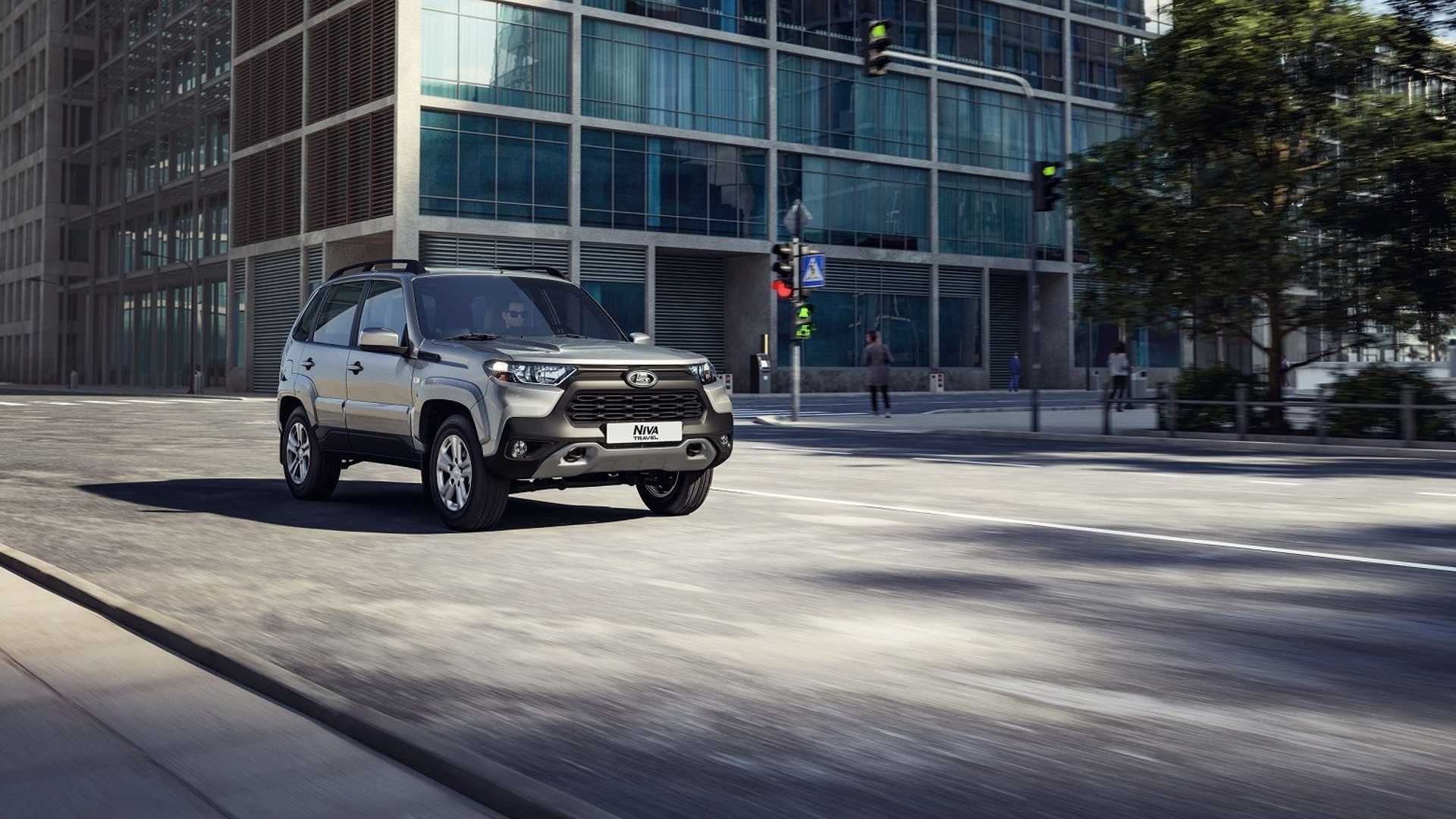
21 DICIEMBRE 2020
El 21 de diciembre, la planta '' LADA West Togliatti '', una subsidiaria de JSC '' AVTOVAZ '', inició la producción en serie del SUV bajo el nuevo nombre - LADA Niva Travel. Dmitry Azarov, gobernador de la región de Samara, e Yves Karakatzanis, presidente de AVTOVAZ, participaron en la ceremonia solemne del primer automóvil de producción que salió de la línea de montaje. El primer automóvil lanzado fue el Niva Travel en la versión todoterreno.
En la ceremonia, Yves Karakatzanis, presidente de AVTOVAZ, señaló: «Este es un gran logro, especialmente para el equipo de« Lada West Togliatti », que gestionó eficientemente a tiempo este importante proyecto. Niva tiene una larga historia y un camino glorioso. Más de 650 mil de estos automóviles circulan hoy por las carreteras y todo terreno en Rusia, la CEI y otros países. Con el regreso del legendario nombre Niva a la familia LADA, abrimos una nueva página en su historia. Quiero asegurarles que en los próximos años este nombre estará asociado a muchas novedades importantes e interesantes ».
La apariencia de LADA Niva Travel ha recibido cambios significativos, volviéndose más expresiva y moderna. En la parte delantera, el carácter masculino del automóvil se enfatiza con un nuevo capó con líneas estampadas más voluminosas, rejilla de malla grande y nuevos faros. Las molduras laterales y los forros de los pasos de rueda en relieve, combinados con un nuevo diseño de llantas de aleación, resaltan el excelente rendimiento todoterreno del modelo. La parte trasera también tiene cambios, recibiendo nuevas luces traseras completamente LED y un parachoques con más relieve.
En la versión Off-road, el exterior del Niva Travel se complementa con un snorkel de serie, neumáticos todoterreno y un kit de carrocería fabricado en plástico sin pintar, que protegerá la carrocería en la naturaleza y quedará genial en las carreteras de la ciudad gracias a los detalles contrastantes y expresivos. diseño.
Todos los automóviles LADA Niva Travel están equipados con un sistema de tracción total permanente, que garantiza una distribución uniforme y una transmisión constante del par a todas las ruedas del automóvil con la posibilidad de bloqueo mecánico del diferencial central y encendido de la serie de cambio descendente.
Mayor capacidad de cross-country garantizada en condiciones difíciles de la carretera LADA Niva Travel también ofrece una carrocería compacta, una distancia óptima entre los ejes, voladizos cortos de la carrocería y una gran distancia al suelo. La suspensión que consume mucha energía hace que la conducción todoterreno sea lo más cómoda posible.
La comodidad del conductor y los pasajeros proporcionará un interior espacioso con excelente visibilidad, aire acondicionado potente, aislamiento confiable de ruido y vibraciones, asientos cómodos y multimedia.
El inicio de las ventas de LADA Niva Travel se anunciará más adelante.





21 DICIEMBRE 2020
El 21 de diciembre, la planta '' LADA West Togliatti '', una subsidiaria de JSC '' AVTOVAZ '', inició la producción en serie del SUV bajo el nuevo nombre - LADA Niva Travel. Dmitry Azarov, gobernador de la región de Samara, e Yves Karakatzanis, presidente de AVTOVAZ, participaron en la ceremonia solemne del primer automóvil de producción que salió de la línea de montaje. El primer automóvil lanzado fue el Niva Travel en la versión todoterreno.
En la ceremonia, Yves Karakatzanis, presidente de AVTOVAZ, señaló: «Este es un gran logro, especialmente para el equipo de« Lada West Togliatti », que gestionó eficientemente a tiempo este importante proyecto. Niva tiene una larga historia y un camino glorioso. Más de 650 mil de estos automóviles circulan hoy por las carreteras y todo terreno en Rusia, la CEI y otros países. Con el regreso del legendario nombre Niva a la familia LADA, abrimos una nueva página en su historia. Quiero asegurarles que en los próximos años este nombre estará asociado a muchas novedades importantes e interesantes ».
La apariencia de LADA Niva Travel ha recibido cambios significativos, volviéndose más expresiva y moderna. En la parte delantera, el carácter masculino del automóvil se enfatiza con un nuevo capó con líneas estampadas más voluminosas, rejilla de malla grande y nuevos faros. Las molduras laterales y los forros de los pasos de rueda en relieve, combinados con un nuevo diseño de llantas de aleación, resaltan el excelente rendimiento todoterreno del modelo. La parte trasera también tiene cambios, recibiendo nuevas luces traseras completamente LED y un parachoques con más relieve.
En la versión Off-road, el exterior del Niva Travel se complementa con un snorkel de serie, neumáticos todoterreno y un kit de carrocería fabricado en plástico sin pintar, que protegerá la carrocería en la naturaleza y quedará genial en las carreteras de la ciudad gracias a los detalles contrastantes y expresivos. diseño.
Todos los automóviles LADA Niva Travel están equipados con un sistema de tracción total permanente, que garantiza una distribución uniforme y una transmisión constante del par a todas las ruedas del automóvil con la posibilidad de bloqueo mecánico del diferencial central y encendido de la serie de cambio descendente.
Mayor capacidad de cross-country garantizada en condiciones difíciles de la carretera LADA Niva Travel también ofrece una carrocería compacta, una distancia óptima entre los ejes, voladizos cortos de la carrocería y una gran distancia al suelo. La suspensión que consume mucha energía hace que la conducción todoterreno sea lo más cómoda posible.
La comodidad del conductor y los pasajeros proporcionará un interior espacioso con excelente visibilidad, aire acondicionado potente, aislamiento confiable de ruido y vibraciones, asientos cómodos y multimedia.
El inicio de las ventas de LADA Niva Travel se anunciará más adelante.
Última edición:
cybermad
Clan Leader
A mi también, es como el Mercedes G o el Wrangler, que mola su estética original.
A mi también, es como el Mercedes G o el Wrangler, que mola su estética original.
Es que el nuevo parece un Hyundai de hace unos años. Y el otro se parecía a un... Lada Niva
cybermad
Clan Leader
Es que han tenido lío con General Motors y Chevrolet... todo se pega menos la bellezaEs que el nuevo parece un Hyundai de hace unos años. Y el otro se parecía a un... Lada Niva

2021 Lada Niva Travel Has Toyota RAV4 Vibes, Off-Road Version Flaunts a Snorkel
22 Dec 2020
Not to be confused with the original from the 1970s, the Niva II rolled out in 1998 as the VAZ-2123. When AvtoVAZ agreed to enter a partnership with American automaker General Motors, the mini SUV was renamed to Chevrolet Niva although there’s hardly any Chevrolet about it.
After the biggest of the Big Three dissolved the joint venture one year ago, the Russian automaker decided to switch back to the Lada brand. This gets us to the Niva Travel, which is pretty much the same thing as the standard model except for the looks that have been obviously influenced by Toyota.
From the headlights to the design of the front grille, I can’t blame anyone for calling this fellow a RAV4. As far as the oily bits are concerned, the Niva Travel doesn’t compare to Toyota’s crossover because of a 1.7-liter gasoline engine that rolled out in 1993. Yes, it’s that old under the skin.
Rated at 80 horsepower and 127 Nm (94 pound-feet) of torque, the free-breathing motor is connected to a five-speed manual transmission that leaves much to be desired. For starters, the 62 miles per hour (100 kilometers per hour) takes a staggering 19 seconds from a standstill. And secondly, the Niva Travel can’t do better than 87 miles per hour (140 kph).
Manufactured at the Lada West Togliatti assembly plant alongside the regular model, the newest member of the Niva family features permanent all-wheel drive with an open differential, a transfer case with high and low range, and a manual central differential lock. In other words, this thing is considerably more capable off the beaten path than the Toyota RAV4.
Two trim levels will be available at launch, including an Off-Road specification that stands out with the help of a snorkel, unpainted plastic cladding, and chunky rubber. Expected to go on sale next spring, the Niva Travel doesn’t have a price tag for the time being. In all likelihood, AvtoVAZ will charge more than it does for the regular model, which retails from 726,000 rubles in Russia or the equivalent to $9,600 at current exchange rates.
Es que han tenido lío con General Motors y Chevrolet... todo se pega menos la belleza
2021 Lada Niva Travel Has Toyota RAV4 Vibes, Off-Road Version Flaunts a Snorkel
22 Dec 2020
Not to be confused with the original from the 1970s, the Niva II rolled out in 1998 as the VAZ-2123. When AvtoVAZ agreed to enter a partnership with American automaker General Motors, the mini SUV was renamed to Chevrolet Niva although there’s hardly any Chevrolet about it.
After the biggest of the Big Three dissolved the joint venture one year ago, the Russian automaker decided to switch back to the Lada brand. This gets us to the Niva Travel, which is pretty much the same thing as the standard model except for the looks that have been obviously influenced by Toyota.
From the headlights to the design of the front grille, I can’t blame anyone for calling this fellow a RAV4. As far as the oily bits are concerned, the Niva Travel doesn’t compare to Toyota’s crossover because of a 1.7-liter gasoline engine that rolled out in 1993. Yes, it’s that old under the skin.
Rated at 80 horsepower and 127 Nm (94 pound-feet) of torque, the free-breathing motor is connected to a five-speed manual transmission that leaves much to be desired. For starters, the 62 miles per hour (100 kilometers per hour) takes a staggering 19 seconds from a standstill. And secondly, the Niva Travel can’t do better than 87 miles per hour (140 kph).
Manufactured at the Lada West Togliatti assembly plant alongside the regular model, the newest member of the Niva family features permanent all-wheel drive with an open differential, a transfer case with high and low range, and a manual central differential lock. In other words, this thing is considerably more capable off the beaten path than the Toyota RAV4.
Two trim levels will be available at launch, including an Off-Road specification that stands out with the help of a snorkel, unpainted plastic cladding, and chunky rubber. Expected to go on sale next spring, the Niva Travel doesn’t have a price tag for the time being. In all likelihood, AvtoVAZ will charge more than it does for the regular model, which retails from 726,000 rubles in Russia or the equivalent to $9,600 at current exchange rates.
A mí me ha recordado a algo así

Similar threads
- Respuestas
- 14
- Visitas
- 479
- Respuestas
- 7
- Visitas
- 353
- Respuestas
- 1
- Visitas
- 147
- Respuestas
- 716
- Visitas
- 47K



